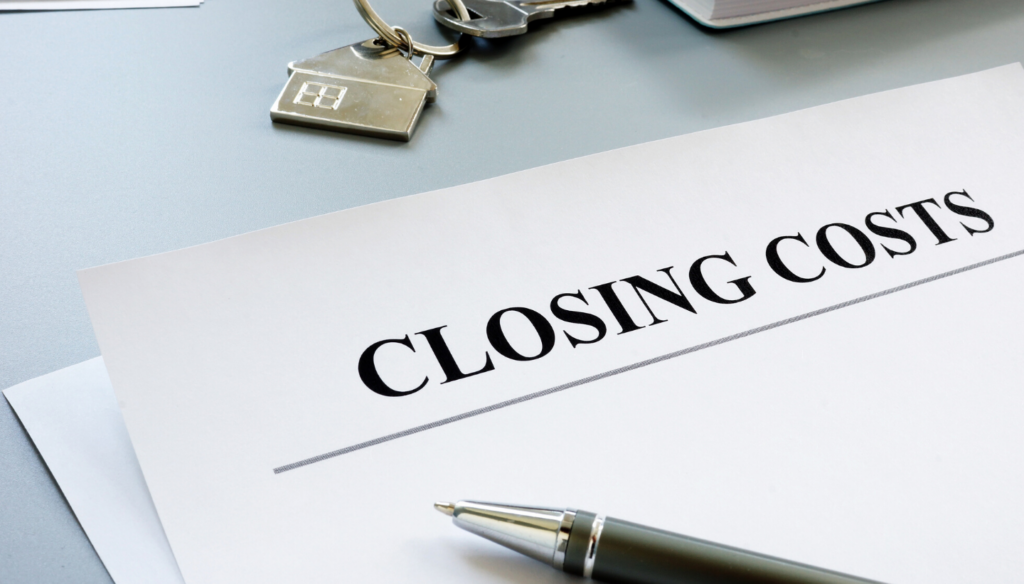Introduction
When someone searches for “What Are Closing Costs Exactly in Texas?”, they are likely in the process of selling a property or preparing to sell. They want to know exactly what financial responsibilities they will face when it comes to closing the deal. It’s a crucial question, as closing costs can often surprise sellers, especially if they are unaware of all the fees and deductions that could come out of their proceeds. Most likely, the person searching is looking for clarity on how much they’ll actually pocket from the sale after all fees have been taken into account.
Key concerns may include understanding the different types of closing costs in Texas, how much they should expect to pay, and whether there are ways to reduce or avoid these costs. A seller might be wondering whether they will need to pay for repairs, title insurance, or commissions, and how that will impact the final sale price. Additionally, they may be searching for alternatives that allow them to avoid some of these costs altogether.
This blog will address those concerns and provide clear, actionable insights into what closing costs typically look like in Texas. By explaining the types of fees involved, offering examples with cost estimates, and comparing the process of selling through traditional means versus selling for cash, we’ll give readers a detailed understanding of the financial landscape, helping them make a more informed decision.
What Are Closing Costs in Texas?

When you decide to sell your home, one of the most important financial considerations is the closing costs. In Texas, like anywhere else, closing costs are the fees associated with finalizing the sale of the property. Whether you’re selling your home to a cash buyer or going the traditional route with an agent, these costs are inevitable. However, they can vary widely based on several factors, such as the sale price of your home, the type of sale, and whether you’re selling through a real estate agent.
Types of Closing Costs in Texas
Understanding what makes up closing costs in Texas is essential for any home seller. These costs can be broken down into various categories, each representing different parts of the home-selling process. The most common fees you’ll encounter are:
- Agent Commission Fees: Typically, the real estate agent’s commission will be one of the highest fees you’ll pay when selling your home. In Texas, the standard commission for a real estate agent is 5-6% of the home’s selling price. For example, if you sell your house for $250,000, you might end up paying $12,500 to $15,000 in agent fees.
- Title Insurance: Texas law requires title insurance to protect the buyer from any future ownership disputes. The cost of title insurance typically ranges from 0.5% to 1% of the sale price. For a $250,000 home, expect to pay between $1,250 and $2,500 for title insurance.
- Repairs and Inspections: If the buyer requests repairs based on the home inspection, you may be required to pay for these repairs before closing the sale. The cost of repairs can vary greatly depending on the condition of your home. On average, home repairs could range from $500 to $5,000.
- Escrow Fees: Escrow companies are used to ensure that all documents are correctly processed and that the funds are properly distributed. In Texas, escrow fees typically range from $300 to $1,000, depending on the complexity of the sale.
- Property Taxes: Property taxes in Texas are generally paid in arrears, meaning that you may need to settle the taxes owed up to the closing date. This can be a significant cost, as the property tax rate in Texas is 1.8% on average. For a home worth $250,000, this could be about $4,500 per year, or approximately $375 per month.
- HOA Fees: If your property is part of a homeowners association, you may also need to pay outstanding HOA fees or transfer fees, which typically range from $100 to $400.
- Attorney Fees: In some cases, you may need an attorney to help with the closing, especially if your property has legal issues or if you are dealing with an estate sale. These fees can vary greatly, but they typically range from $500 to $2,000.
As you can see, these fees can add up quickly and reduce the amount of money you walk away with after the sale. So, it’s essential to factor these costs into your financial calculations when selling your home.
If you’re curious about how selling for cash could help you avoid many of these closing costs, check out What It REALLY Costs To Sell Your Home in Houston, TX.
How Much Are Closing Costs in Texas?
On average, closing costs in Texas can range from 6% to 9% of the sale price. For a $250,000 home, this could amount to anywhere between $15,000 and $22,500 in closing costs. While this is a general range, the actual cost could be higher or lower depending on the specifics of your transaction.
Let’s look at a breakdown of typical closing costs for a seller:
- Agent Commissions (5-6%): $12,500 to $15,000
- Title Insurance (0.5-1%): $1,250 to $2,500
- Repairs and Inspections: $500 to $5,000
- Escrow Fees: $300 to $1,000
- Property Taxes (Pro-Rated): $375 to $500
- HOA Fees: $100 to $400
This doesn’t even account for any possible lawyer fees, home warranties, or other miscellaneous costs that may come up during the closing process.
For a deeper look into what selling a home for cash can save you in terms of fees, you may want to read Will Selling Cost You Money in Dallas, TX?
Why Closing Costs Can Be Higher in Texas
Texas, unlike some states, does not have a state income tax, but it does have relatively high property taxes, which directly impact your closing costs. The state’s average property tax rate is 1.8%, one of the highest in the nation. Additionally, Texas has a reputation for being a seller’s market, which can sometimes lead to higher costs for services like title insurance and agent commissions.
Another reason closing costs might be higher in Texas is the general real estate climate. In hot markets like Austin, Houston, and Dallas, home values may be rising quickly, but the costs of buying and selling property can go up with them.
If you’re selling a home in a hot market, like Austin, and want to understand more about the costs of holding property, check out How Much Does Holding A Property Cost in Austin, TX?
Closing Costs When Selling for Cash in Texas
Selling your house for cash can help you avoid many of the traditional costs associated with closing. Cash buyers, like real estate investors, typically do not require you to pay agent commissions, title insurance, or even for repairs, as they buy homes as-is. This can save you a significant amount of money at closing, which can be especially valuable if you’re facing financial stress or need to sell quickly.
When you sell for cash, you’re also able to avoid the long process of negotiations and inspections that are typical when selling through a traditional agent. The closing process can be completed in as little as 7-10 days, which means you get paid faster and don’t have to worry about holding costs like property taxes or HOA fees for much longer.
If you’re interested in how much faster a cash sale can help you avoid closing costs, take a look at How Much Will Listing Your House Really Cost in Houston, TX?
The Hidden Costs of Traditional Selling Methods in Texas
While the costs of selling a home in Texas through a traditional route may be clear, there are often hidden costs that many sellers overlook until it’s too late. For example, waiting for your home to sell on the open market can take several months. During this time, you might still be responsible for property maintenance, utilities, and even mortgage payments.
In addition to these holding costs, there are the emotional costs of uncertainty and potential disappointment if your home doesn’t sell right away. Some sellers find themselves in a position where they are paying for a house they no longer want or need, all the while dealing with the stress of showings, negotiations, and price reductions.
Conclusion: Is It Worth It?
Selling a home in Texas can be an expensive endeavor, with agent commissions, repair costs, and title insurance quickly eating into your profits. These mounting expenses often leave sellers with far less than they anticipated. For those facing financial challenges or needing to sell quickly, selling to a cash buyer like Houston Area Home Cash Buyers can be a far more practical solution. By avoiding these costly fees and streamlining the process, you could save thousands and close the sale in a fraction of the time.
If you’re ready to explore how selling for cash could benefit you, contact us today for a free, no-obligation cash offer.
For more information on why selling for cash can be a smarter decision, you may want to check out Costs of Listing With An Agent in Texas.

